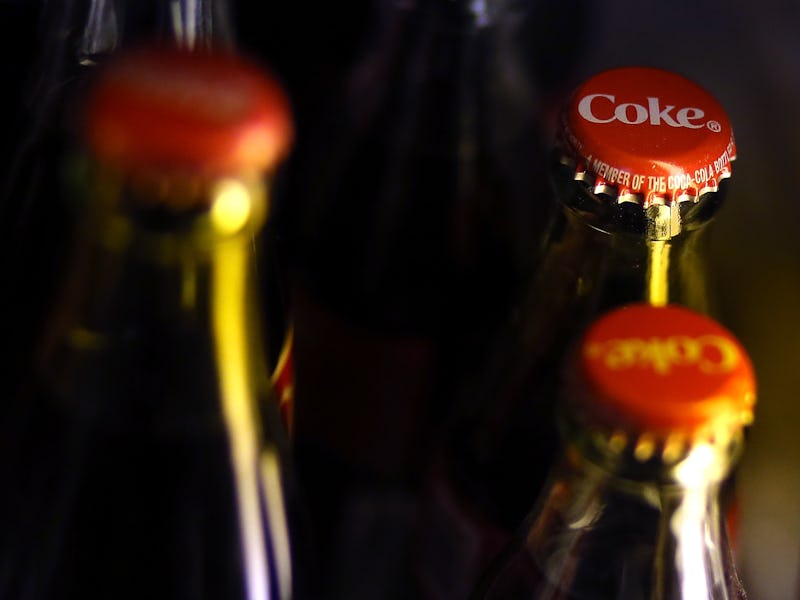Coca-Cola Backs Junk-Food Science, as Tobacco Once Backed Junk Science
Trust them. These guys are doctors.

Before you take a sip of delicious Coca-Cola or a puff from your trusty Marlboro Reds, let’s do a little “Which Industry Has Funded Its Own Favorable Science?” Madlibs, shall we? Of the following paragraphs from a recent New York Times article, see if you can determine which statement is about tobacco and which is about soda:
“‘[Brand]’s sales are slipping, and there’s this huge political and public backlash against [its product], with every major city trying to do something to curb consumption,’ said Michele Simon, a public health lawyer. ‘This is a direct response to the ways that the company is losing. They’re desperate to stop the bleeding.’”
Or:
“But much like the research on [product], studies of physical activity funded by the [product] industry tend to reach conclusions that differ from the findings of studies by independent scientists.”
Think you’ve got it? Well, both are about soft drinks. The Times details Coca-Cola’s move to back a science-based approach to combat obesity, contending that exercise — rather than, say, trading sugary beverages for tap water — will keep people healthy. Coke’s making these claims with the help of the Global Energy Balance Network, a nonprofit that claims to stress something called “energy balance,” a nebulous catch-all term that uses a series of equally vague healthy-sounding explanations on its website to try to connect fitness and health while leaving Coke out altogether.
If you can shed some light on it please let us know, because we’re still not sure. Even the Times is confused, explaining, “Health experts say this message is misleading and part of an effort by Coke to deflect criticism about the role sugary drinks have played in the spread of obesity and Type 2 diabetes.” The muddled message is, it seems, the message. Through an open-records request The Times found the nonprofit was started with $1.5 million of Coca-Cola seed money. Since 2008 the soft drink company has also continually funded projects by two of the Global Energy Balance Network’s founders — Dr. Steven N. Blair, a professor at the University of South Carolina, and Gregory A. Hand, dean of the West Virginia University School of Public Health — to the tune of $4 million in total.
The scientists affiliated with the group assured the Times that Coke has no bearing over their findings. But this is a bad look for a big industry under fire, and it recalls the tobacco industry’s methods of funding private research that were called into question years ago. Eventually, a group of medical journals barred tobacco-funded research from publication, citing a conflict of interest.
The soft drink giant looks to be grasping for some scientific backing in an increasingly hostile time. In the past two decades, Americans’ sugary soft drink consumption is down a whopping 25 percent. Maybe science will prove that you can keep drinking as many Cokes as you like and never feel any health effects, so long as you’re exercising amply. Or maybe we’ll look back in 60 years and wonder what we were thinking in drinking that much sugar. Surely, people never trusted the ads, right?